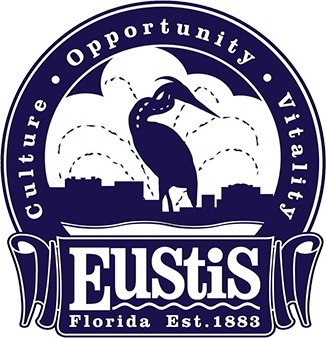 The Freedom From Religion Foundation is chastising a Florida city commissioner for his mishandling of the city's invocation practice.
The Freedom From Religion Foundation is chastising a Florida city commissioner for his mishandling of the city's invocation practice.
On May 4, the National Day of Prayer, a board member of the Central Florida Freethought Community gave a secular invocation as part of the Eustis City Commission's invocation policy. Commissioner Anthony Sabatini then gave a second, religious invocation, which appears to be the first time the commission has allowed this. Sabatini instructed all present to "stand" and "bow your heads." He addressed a prayer to his "Lord," to "live in your name," and asked for the strength "to live like your son, Jesus Christ, amen." This second invocation was clearly meant to, in Sabatini's words, "answer . . . radical militant atheists."
During that meeting, Sabatini also suggested, in a clear effort to keep out future secular invocations, that invocation-givers be restricted on the basis of residency. Sabatini or his staff members reportedly have been deleting comments critical of his behavior from official government-maintained public forums, such as Sabatini's official Facebook page.
There are four distinct constitutional problems that arise from such behavior, FFRF asserts.
First, Sabatini's "corrective" prayer violated the Constitution.
"The Supreme Court recently addressed the issue of legislative prayer in Greece v. Galloway," FFRF Staff Attorney Andrew Seidel writes to Eustis Mayor Robert Morin. "The Supreme Court clearly stated that the purpose of these invocations must be inclusive. Treating an atheist or nonbeliever who wishes to give an invocation differently from a religious citizen constitutes discrimination."
Sabatini's "answering" prayer was clear and deliberate differential treatment. It intentionally denigrated the secular invocation, flouting the central principle of Greece v. Galloway: no discrimination against minorities.
The second constitutional violation is that commissioners engaging in the act of prayer breaches the Constitution.
"The Supreme Court in Galloway only approved opening a neutral forum for others, including non-Christians and atheists, to give invocations," Seidel states. "Local government officials should not be in the business of writing and offering prayers themselves."
Third, restricting invocation opportunity on the basis of residency infringes the Constitution. Residency requirements are inherently discriminatory against minority religions.
"Courts have repeatedly held that residency requirements on First Amendment rights, such as religion and speech, are invalid under the Equal Protection Clause," writes Seidel. "In an Equal Protection case involving a fundamental right, such as free speech, the government must have a compelling government interest in burdening that right."
In 2015, FFRF filed a federal lawsuit in cooperation with the ACLU against Franklin County, Ind., over a residency requirement in the county's display policy. The county quickly amended its policy to remove the residency requirement and settled the lawsuit. The Eustis City Commission's proposal is similarly unconstitutional.
And, lastly, censorship of criticism on Commissioner Sabatini's official Facebook page is unconstitutional.
Sabatini maintains two Facebook pages, a personal page, and an official government page, listing his full name and title, alongside his official portrait and a picture of Eustis City Hall. Sabatini or his staff members have reportedly been deleting comments from this official page critical of his actions regarding the prayers.
Censoring critical comments is a textbook violation of citizens' First Amendment rights, as viewed by courts. Sabatini may either allow all comments or none. The fact that the forum is online is irrelevant, as Supreme Court Justice Anthony Kennedy has explained: "minds are not changed in streets and parks as they once were"; "the more significant interchanges of ideas and shaping of public consciousness occur in mass and electronic media." Last year, American Atheists settled a case regarding a similar issue against a county sheriff in Tennessee, costing the county $41,000.
Our nation is founded on a godless Constitution, FFRF notes. Overall, 23 percent of Americans identify as nonreligious, an eight-point increase since 2007 and 15-point jump since 1990, making the "Nones" the fastest-growing identification in America. If the Eustis City Commission wishes to hear Christian prayers, it must also be prepared to hear Muslim, Hindu, Buddhist, Native American, and, yes, even atheist invocations.
FFRF urges the Eustis City Commission to drop prayers altogether. If the commission continues to insist on prayers, it has no power or authority to regulate the content of those opening remarks or to schedule multiple prayers and permit commissioners to give their own prayers. Finally, it must halt Sabatini's unconstitutional censorship in an official government forum opened for public comment.
"City commissioners need to focus on their work, not theology," says FFRF Co-President Annie Laurie Gaylor. "They perhaps fail to realize how divisive and disruptive their shenanigans are."
The Freedom From Religion Foundation is a nationwide nonprofit organization, with more than 28,000 nonreligious members and chapters nationwide including 1,400-plus in Florida and a local chapter, the Central Florida Freethought Community.